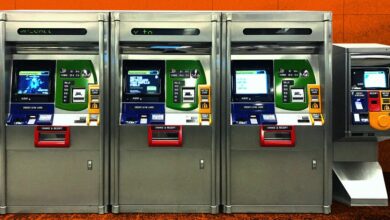Buying a Condo vs. Renting an Apartment: Which is Better?

The debate on condo vs apartment is the one who has always divided opinions between people. If you are looking for a new home, should you buy a condo or rent an apartment?
While some may think that buying a condo is better suited to their needs, others choose to rent a home as their preferred lifestyle. Choosing between owning a condo and renting an apartment can be complex and stressful. There are many financial and lifestyle considerations that need to be taken into account in order for you to make an informed decision.
Let’s take a look at the comparison between buying a condo and renting an apartment. What makes each option unique, and more importantly, what is the best?
What is a condo?
A condominium, commonly known as a “condo,” is a private residence in a larger building or complex. When you become the owner of a condo, you become the owner of the accommodation, as well as the right to use the common areas. Together with other condo owners, you will share swimming pools, garages, elevators, common hallways, and gyms, to name a few. Put simply, you don’t fully own the amenities of the building.
Owning a condo means you can decide who will rent out your unit. You are the owner and the interaction with tenants will be handled directly by you. With a condo, you will increase the equity in your home. Equity is the difference between what you owe on your mortgage and the current value of your home. Investing in a condo means working to build up equity, especially if the property is in a prime location.
You will find high rise condo buildings in the city, providing a great living experience. The term “skyscraper” refers to a building that rises vertically for seven or more floors. Therefore, condominium buildings can be as high as you can imagine, and the higher you go, the better the viewing experience.
What is an apartment?
An apartment is a rented unit that is part of one or more residential buildings that are usually owned and / or managed by the property management business. In an apartment, tenants have common areas to share such as a swimming pool, gym and covered parking.
Usually, units are defined by rental contracts between an owner and a tenant, with a flexible lease that can range from a few months to a year. All tenants are subject to the same guidelines in the building or complex, which are established by the owner or the management company.
What is the difference between a condo and an apartment
The difference between a condo and an apartment arise from the property. While an apartment is owned and managed by a property management company, a condo, on the other hand, is owned by an individual who manages it, or it is under the aegis of the community of co-owners. owners association FLOWER, which gets help from property management companies to manage it.
When you rent a condo, you usually hire the owner directly, unlike an apartment where you deal with a property manager who works for the condo. society. Often times, it is easier to contact the owner directly in the case of renting a condo, however, for an apartment, you will not necessarily have as much contact with the owner.
Condos are often managed by owners, and renting one can be chaotic if the owner is inaccessible, especially when you need urgent help. If you are thinking of renting a condo, consider the owner’s availability.
Let’s take a look at how condos and apartments stack up against other points of view.
The cost aspect: buying a condo vs. renting an apartment
You might think that a condo will cost you more than an apartment. Well, to some extent you are right. Condos generally require a down payment to partially offset the purchase price. The deposit can be anywhere between 3.5% to 20% of the price of the good. On the other hand, the rental will cost less up front, with requirements of one month’s rent and a security deposit.
If you are missing a large amount of cash to offer up front, you will likely have to rent, which is usually less expensive than buying a condo. That said, depending on the location of the property, the monthly costs for a condo and an apartment could be similar.
Cost associated with the purchase of a condo
Condo owners are required to pay monthly fees to HOA. HOA fees represent the biggest expense of the condominium lifestyle. HOA fees are used to facilitate maintenance and other expenses such as parking, insurance, and a contingency fund. The downside to paying these fees is that you never get them back and it doesn’t create equity.
Unlike apartments, owning a condo involves the payment of property taxes. This means that condo owners incur additional costs, in the name of taxes, annually. You should also keep in mind that the condo closing costs can go up to several thousand dollars.
Depending on your budget, you can pay a advance payment and offset the rest with a monthly mortgage payment.
Cost associated with renting an apartment
In addition to paying monthly rent, as a tenant you can also pay utilities, such as gas, electricity and internet separately, for external providers each month.
That said, in the apartments, you don’t have to worry about closing costs. As soon as you pay a security deposit and a month’s rent, you’re good to go.
Maintenance
Whether you are renting an apartment or owning a condo, maintenance is always a must. A problem will always appear and requires immediate attention before the damage gets out of hand. Then how maintenance vary in condos and apartments?
Maintenance in the condos
If you own a condo, it is your responsibility to repair any damage to the interior. If you choose to hire a tenant, you can agree on the cost that one of you will take for upkeep. However, HOA often covers any maintenance of the community, such as shared equipment and the building itself.
Unlike apartments where management will arrange maintenance by sending someone to your unit, owning condos means you will have to manage the process, since you are technically the owner.
Maintenance in the apartments
In most apartments, maintenance is offered free and available 24/7. Of course, management does not want to upset its tenants by being inefficient at essential services like maintenance. Most repairs are usually their responsibility, and all you need to do is submit a service request.
How do condo and apartment rules and regulations compare, and who sets them?
Rules and regulations can be stressful, especially when it limits your lifestyle, right? Needless to say, you’ll have to follow them if you want to stay in the community, whether it’s the condo or the apartment.
In the case of a condo
In a condo, the rules and regulations are likely to be set by the HOA. These regulations provide guidelines on residential life to avoid chaos and unnecessary problems within the community. For example, you will be informed of the community pet policy.
It is always important to check if the community accepts pets before purchasing a condo. It is not a guarantee that they will accept animals.
In the case of an Apartment
In most of the cases, it is the apartment management company that sets the residential guidelines for everyone to follow. Most, apartments don’t want to interfere with the walls. This means more restrictions on customization, unlike condos where there are fewer restrictions.
Why you might be better off renting an apartment
More flexibility
Renting an apartment gives you the flexibility you need, which means you’ll have the ability to move quickly. The owner of a condo must sell the property, or rent it, before moving. Leases always include an exit clause, giving the tenant the option to terminate it as stipulated in the contract.
More convenient location
Apartments can often be found in a prime location, such as being within walking distance of social amenities. For example, you will find a apartment for rent around major shopping malls and popular leisure facilities, to name a few.
Less maintenance than condos
Renting an apartment gives you the financial advantage of not incurring maintenance costs. As stated before, it is the property management company’s responsibility to fix it.
Yes own a condo or renting an apartment is not your taste, maybe you might want to consider houses for sale. You’ll find plenty of listings, ranging from single-family homes to multi-family homes, no matter what neighborhood you want to live in, and real estate agents can be essential in helping you secure your home. next house. Buying a home also gives you the opportunity to build equity.
What to consider when choosing a home for sale
It is important to be aware of the critical factors when purchasing your next real estate. Let’s see what these essential aspects are when buying a home.
Budget
Determine how much you are willing to pay for a home. Prices vary, as does the quality and location of the house.
Mortgage
Are you eligible for a mortgage? Is your credit score good enough to attract a substantial mortgage for your home?
Location
Choose a location that gives you easier access to social services.
Last word
To buy a condo or rent an apartment is your choice to make, but at least backing it up with facts will help. Based on the above discussion of buying a condo versus renting, we can finally conclude that renting an apartment is the best option.
Flexibility, financial advantages and convenience are all part of what’s important about your lifestyle. The rental corresponds perfectly to the description, and thus gets the green light on any day.
Taking out a variable rate mortgage can be expensive, especially when the rate goes up. The rental will be more serene, because you will not have to worry about the mortgage payments.




